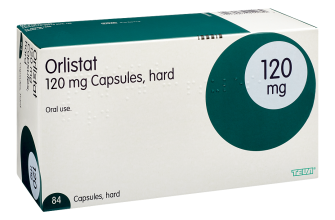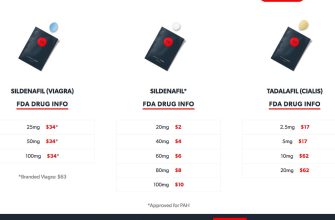Need to understand Levothyroxine? Start by taking your medication exactly as prescribed. Consistency is key to managing your thyroid levels effectively.
Dosage adjustments are common. Expect regular blood tests to monitor your TSH levels. These tests guide your doctor in fine-tuning your prescription for optimal results. Open communication with your physician is crucial for managing your treatment.
Avoid taking Levothyroxine with certain foods and medications, such as calcium supplements or iron. These can interfere with absorption. Your doctor can provide a detailed list of potential interactions. Consult them before making any changes to your diet or medication regimen.
Recognize potential side effects. These can include changes in weight, heart rate, or sleep patterns. Report any significant changes to your doctor immediately. They can help manage these side effects and adjust your treatment plan accordingly.
This medication is a lifelong commitment for many. Develop a routine to remember your daily dose. A pill organizer or setting a reminder on your phone can help maintain consistency. Your well-being depends on it.
- Dosage and Administration: Understanding Your Prescription
- Potential Side Effects and How to Manage Them
- Managing Gastrointestinal Issues
- Addressing Sleep Disturbances
- Interactions with Other Medications and Supplements
- Common Interactions
- Monitoring Your Treatment and When to Contact Your Doctor
- Long-Term Use and Management of Hypothyroidism
- Adjusting Your Dosage
- Lifestyle Considerations for Optimal Thyroid Health
- Medication Interactions
- Seeking Support
- Regular Check-ups with Your Doctor
- Potential Long-Term Effects (If Untreated)
- Understanding Your Test Results
Dosage and Administration: Understanding Your Prescription
Always take levothyroxine exactly as prescribed by your doctor. Your dose will be individualized based on your specific needs and regularly monitored through blood tests. Never adjust your dosage without consulting your physician.
Typically, levothyroxine is taken once daily, on an empty stomach, at least 30-60 minutes before breakfast. This ensures optimal absorption. Avoid taking it with foods or beverages that contain calcium, iron, or fiber, as these can interfere with absorption.
Swallow the tablet whole with a full glass of water. Do not crush, chew, or break the tablet. If you have difficulty swallowing tablets, discuss alternative formulations with your doctor, such as a liquid or soluble tablet.
Consistency is key. Take your medication at the same time each day to maintain a stable level of thyroid hormone in your bloodstream. Missing doses can lead to fluctuations in your hormone levels and affect treatment effectiveness. If you miss a dose, take it as soon as you remember, unless it’s almost time for your next dose. Never double up on doses.
Report any side effects to your doctor immediately. Common side effects can include headaches, weight changes, and changes in heart rate. However, severe side effects are rare. Regular blood tests are used to monitor your thyroid hormone levels and adjust your dosage as needed. These tests are crucial for ensuring your treatment is working correctly and to prevent potential complications.
Store your medication in a cool, dry place, away from direct sunlight and moisture. Keep it out of reach of children and pets.
Always bring your prescription bottle to your doctor’s appointments to ensure accurate tracking of your medication. Open communication with your doctor is crucial for managing your thyroid condition effectively.
Potential Side Effects and How to Manage Them
Experience changes in your heart rate? Report this to your doctor immediately. Levothyroxine can sometimes affect your heart rhythm. Your doctor can adjust your dosage or prescribe medication to manage any irregularities.
Weight changes, either gain or loss, are common. Monitor your weight weekly and discuss significant fluctuations with your physician. Dietary adjustments and increased exercise might be helpful, but always consult your doctor before making significant lifestyle changes.
Feeling anxious or irritable? These are potential side effects. Talk to your doctor. They may recommend a lower dose or suggest strategies for managing anxiety, such as relaxation techniques or therapy.
Managing Gastrointestinal Issues
Experiencing nausea, vomiting, or diarrhea? Taking your levothyroxine on a full stomach can help. Your doctor may also suggest trying different brands or formulations to find one that better suits your body. If symptoms persist, discuss this with your doctor.
Addressing Sleep Disturbances
Difficulty sleeping? Try taking your medication in the morning instead of at night. Maintaining a regular sleep schedule and creating a relaxing bedtime routine might also improve sleep quality. If sleep problems continue, speak to your healthcare provider. They can rule out other causes and offer solutions.
Remember, individual responses to medication vary. Open communication with your doctor is crucial for managing any side effects and ensuring optimal treatment.
Interactions with Other Medications and Supplements
Always inform your doctor and pharmacist of all medications, supplements, and herbal remedies you take, including over-the-counter drugs. This includes vitamins and minerals. Many substances can affect levothyroxine’s absorption and effectiveness.
Common Interactions
Certain medications commonly interact with levothyroxine. For example, calcium supplements, iron supplements, antacids containing aluminum or magnesium, and some cholestyramine or colestipol drugs can reduce levothyroxine absorption. Take levothyroxine at least four hours before or after taking these medications. Soy products can also interfere with absorption; consider spacing consumption.
Certain medications, like some antidepressants (like sertraline or fluoxetine), can alter your thyroid hormone levels and require careful monitoring and potential dosage adjustments. Discuss these interactions with your doctor if you’re taking these medications concurrently.
Don’t self-treat. Changes to your levothyroxine regimen must be made under your doctor’s guidance. Regular thyroid function tests are necessary to ensure the medication remains effective.
Monitoring Your Treatment and When to Contact Your Doctor
Regularly monitor your weight. Significant weight changes, either gain or loss, should be reported to your doctor.
Track your heart rate. Note any significant increases or decreases in resting heart rate. Report any palpitations or irregular heartbeats.
Pay close attention to your energy levels. Are you experiencing persistent fatigue or unusual tiredness? Document any changes and share this information with your physician.
Monitor your bowel movements. Changes in bowel frequency or consistency should be noted and discussed with your doctor. Constipation or diarrhea can be indicative of medication adjustments.
Record your mood. Note any significant shifts in mood, such as increased anxiety or depression. Your doctor can help determine if your medication needs adjustment or if other factors are at play.
Keep a detailed medication log. This should include the dosage, time of administration, and any side effects experienced. This provides valuable data for your physician.
Contact your doctor immediately if you experience any chest pain, shortness of breath, severe headaches, muscle weakness, or significant changes in your vision. These symptoms require urgent medical attention.
Schedule regular follow-up appointments. Your doctor will review your progress, adjust your dosage as needed, and conduct necessary blood tests to ensure optimal thyroid hormone levels. Consistent monitoring is key to successful treatment.
Long-Term Use and Management of Hypothyroidism
Maintain regular blood tests to monitor your TSH levels. Aim for testing every 6-12 months, or more frequently if needed, as advised by your doctor. Consistent monitoring ensures your Levothyroxine dosage remains optimal.
Adjusting Your Dosage
Your Levothyroxine needs may change over time due to factors like age, weight fluctuations, or changes in other medications. Report any symptoms suggesting under- or over-medication, such as fatigue, weight gain/loss, or mood changes. Your doctor will adjust your dosage accordingly, based on your TSH results.
Lifestyle Considerations for Optimal Thyroid Health
- Maintain a balanced diet rich in iodine and selenium. Consult a registered dietitian for personalized dietary advice.
- Prioritize regular exercise. Aim for at least 30 minutes of moderate-intensity activity most days of the week.
- Manage stress levels effectively. Explore stress-reduction techniques such as yoga, meditation, or deep breathing exercises.
- Ensure adequate sleep. Aim for 7-9 hours of quality sleep per night.
Medication Interactions
- Inform your doctor about all medications, supplements, and herbal remedies you take. Certain medications can interact with Levothyroxine, affecting its absorption.
- Take Levothyroxine at least 30-60 minutes before other medications or food, particularly calcium supplements and iron, to maximize absorption.
- Avoid taking Levothyroxine with coffee, tea, or high-fiber foods, as these can interfere with absorption.
Seeking Support
Connect with others living with hypothyroidism. Support groups can provide valuable emotional and practical support, sharing experiences and coping strategies. Your doctor can also recommend reliable resources.
Regular Check-ups with Your Doctor
Schedule regular appointments with your endocrinologist to discuss your treatment plan, address any concerns, and make necessary adjustments to your Levothyroxine dosage based on your blood test results and your overall health.
Potential Long-Term Effects (If Untreated)
Uncontrolled hypothyroidism can have long-term consequences, including heart problems, infertility, and neurological issues. Consistent medication and follow-up appointments are crucial for mitigating these risks.
Understanding Your Test Results
Your TSH (thyroid-stimulating hormone) level is a key indicator of your thyroid function. Discuss your test results with your doctor to understand their implications and ensure you are receiving the right level of treatment.










